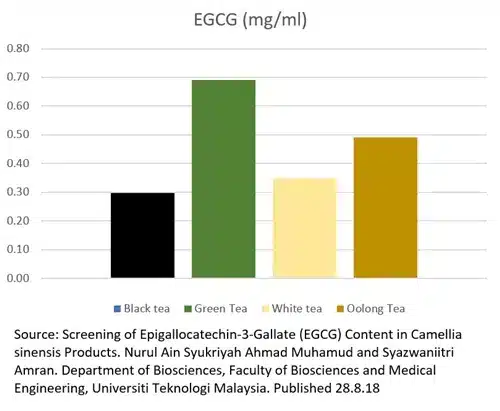Your basket is currently empty!
Oolong tea health benefits
Compared to other teas
Oolong tea health benefits are several, but firstly a recap on what is oolong tea: oolong (wulong or black dragon) is a semi-oxidised form of tea which therefore lies between a green tea (unoxidised) and black tea (oxidised). It uses the same plant Camellia sinensis as these teas but originates from Taiwan where they are still known as Formosa oolongs and from China, particularly from Fujian Province. They have many styles from rolled (closed leaf) to open (open leaf) and across the spectrum from nearly black to nearly green. They tend to have more complexity than green teas and more aromatic and herbaceous qualities than black teas. They are drunk without milk but to do so is a pleasant experience as their tannin levels are low. Oolongs are a fascinating type of tea to explore and you are sure to find examples that you will love. The health benefits of oolong tea are summarised as follows:
Reduces risk of coronary heart disease
Overall cholesterol levels have been shown to fall. Patients consuming over 600 ml oolong tea daily have been shown to suffer less hardening and narrowing of arteries and less cell death in heart muscle.

Promotes weight loss
Oolong tea has been shown to increase metabolism of lipids thereby aiding weight loss and reducing or preventing fat build-up.
Lowers risk of cancer
This is due to oolong tea’s high levels of antioxidants. These are more pronounced in oolong teas than black teas and these are second only to green teas for their levels of the most bio-active antioxidant – EGCG. These are particularly effective in combating free-radicals which harm healthy cells and can cause cancers.
Helps prevent diabetes
High sugar intake in the diet and the inability of increasing prevelence of insulin resistance means that many people are at risk of type 2 diabetes. Oolong tea helps reduce glucose levels in the blood.
Fight against infection.
Flavanoids are part of the antioxidant family of polyphenols. Quercetin is one compound in oolong teas that is particularly good at fighting bacteria and viruses.
Anti-inflammatory
Oolong teas help combat inflammation.
Helps brain function
EGCG (epigallocatechin gallate), a catechin found within flavanols, aids information processing and functioning of the hippocampus so important for memory and learning. In so doing oolong tea, along with green teas, are the best at helping to reduce the risk of Alzheimer’s disease (see chart above).
Maintains high bone density
This is especially important with women who have gone through the menopause.
Reduces incidents of Eczema
Oolong tea benefits include anti-allergenic properties which have been shown to reduce suffering from the conditions of eczema.
This page is a precis of an article published on Dr Axe.
See the oolong teas section of our Tea Store.
